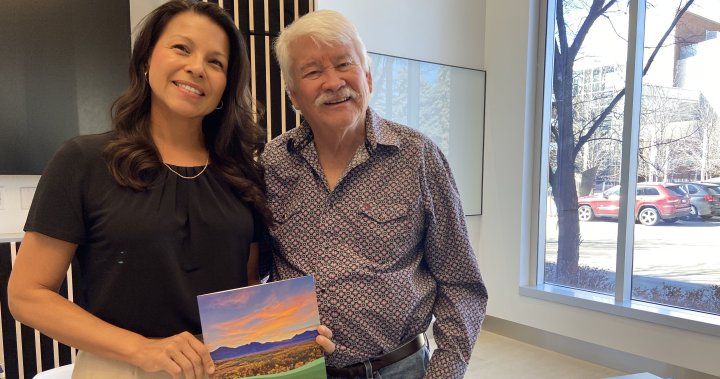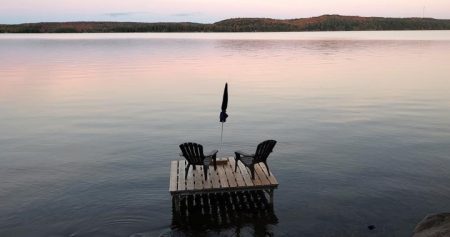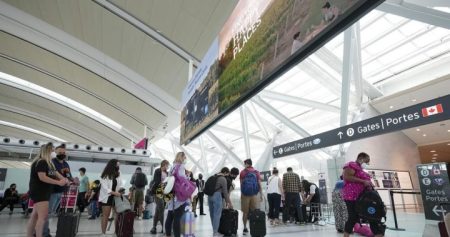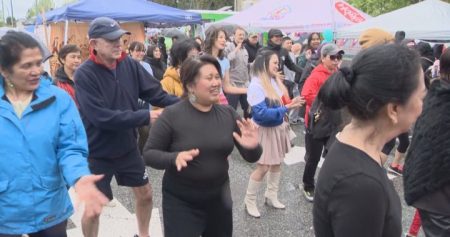The University of Alberta has developed a new guide to help revitalize Indigenous languages, led by Pamela McCoy Jones, the executive director for Indigenous programming and research at the university. The loss of Indigenous languages is attributed to the impacts of the Residential School system, which aimed to erase Indigenous languages and replace them with English and Christianity. Elder Dr. Elmer Ghostkeeper, part of the Indigenous advisory committee for the guide, noted that while there are an estimated 70 Indigenous languages still spoken, only around 15 per cent of people in Indigenous communities can speak fluently. McCoy Jones expressed a desire to combat institutional and systemic racism that has hindered Indigenous pride and cultural connection in the past.
With more available programming and cultural celebrations, McCoy Jones noted an increasing desire amongst people to reconnect with their culture and learn language and traditions. The new resource developed by the University of Alberta serves as an online and printed tool that can guide teachers and learners in creating educational programs towards fluency in Indigenous languages. The guide includes a roadmap for developing curriculums for immersion, bilingual, or subject-specific courses from kindergarten through post-secondary education. McCoy Jones emphasized that the guide is meant to be a starting point and that more resources will be developed to build upon the foundation it provides.
The guide is seen as a step towards reversing the impacts of colonization and supporting Indigenous communities in revitalizing their languages and cultural practices. It represents a shift towards celebrating Indigenous languages and promoting pride in Indigenous identity. McCoy Jones highlighted the importance of ongoing efforts in the community and across Canada to continue the work of language revitalization. The guide aims to support this work by providing tools and resources for educators and learners to create effective language learning programs that can contribute to a resurgence of Indigenous languages.
The University of Alberta’s guide is part of a larger movement towards Indigenous language revitalization in Canada. The guide offers practical solutions and recommendations for developing language programs that cater to a variety of educational settings and age groups. By providing a roadmap for curriculum development, the guide empowers teachers and communities to take meaningful steps towards preserving and promoting their Indigenous languages. McCoy Jones emphasized the need for continued support and resources to further strengthen the language revitalization efforts already underway in Indigenous communities across the country.
The guide is a valuable tool for educators and learners seeking to incorporate Indigenous languages into educational programs. It offers guidance on developing curriculums for immersion, bilingual, and subject-specific language courses from kindergarten through post-secondary education. By offering both online and printed resources, the guide ensures accessibility for a wide range of users. McCoy Jones noted that the guide is just the beginning of a larger effort to support language revitalization initiatives and build upon the existing progress in Indigenous communities. She expressed optimism about the future of Indigenous language revitalization efforts and the potential for increased fluency in Indigenous languages across Canada.
Overall, the University of Alberta’s guide to revitalizing Indigenous languages represents a significant step towards reversing the impacts of colonization and supporting Indigenous communities in reclaiming their languages and cultural heritage. By providing practical resources and recommendations for educators and learners, the guide empowers individuals to take meaningful steps towards fluency in Indigenous languages. McCoy Jones emphasized the importance of ongoing support and resources to continue the momentum of language revitalization efforts in Indigenous communities in Canada. The guide serves as a starting point for further initiatives to celebrate and preserve Indigenous languages and traditions.















